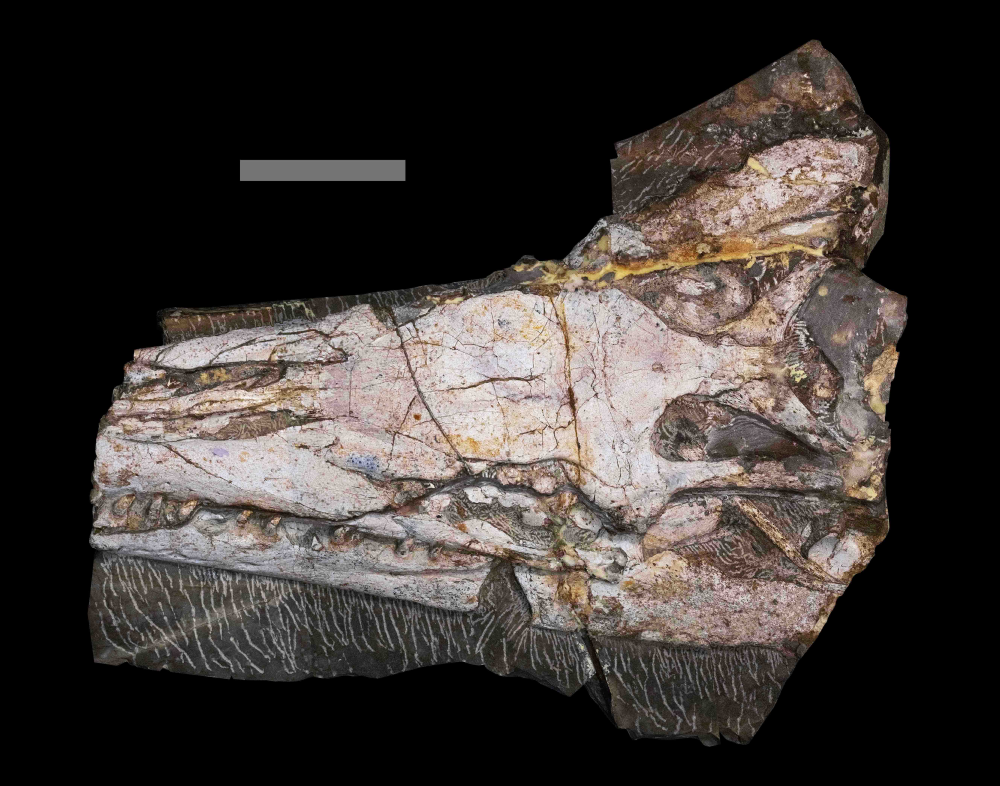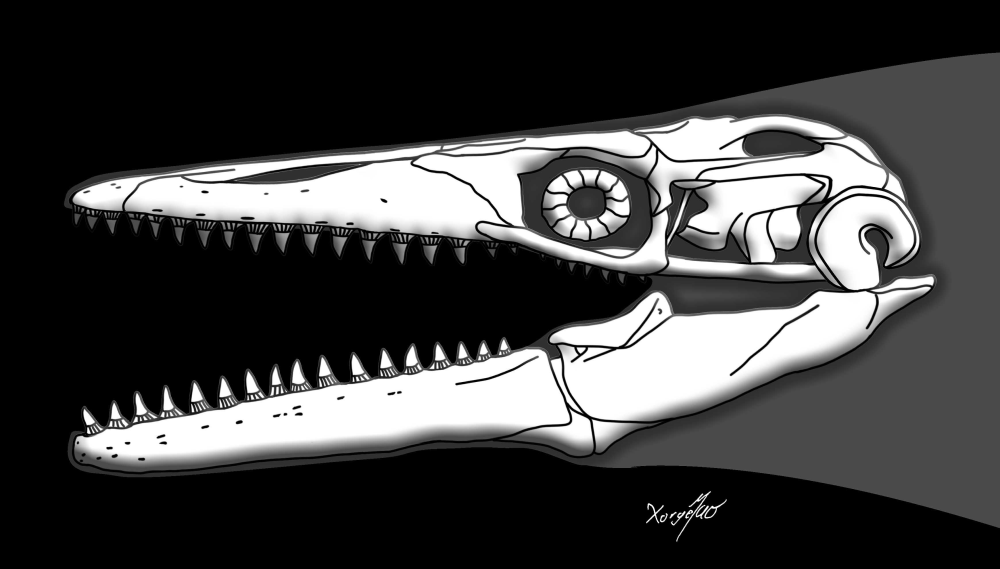A new species of mosasaur has been discovered in Mexico, dating back to the Turonian stage of the Late Cretaceous, which makes it around 90 million years old. Retrieved from the state of Nuevo Leon, the near-complete mosasaur skull is the first of its genus to be found in Mexico, and has a shiny new species name to honor the fossil site’s location.
It belongs to the extinct plioplatecarpine genus of Yaguarasaurus mosasaurs, a group of extinct marine reptiles that were hunting in the waters of the Late Cretaceous while dinosaurs were stomping around on land. It’s been suggested that they had forked tongues owing to the anatomy of their palates and teeth, and also because of the tongues we see in the extant animals thought to be most closely related to them, such as snakes and monitor lizards.
The new species has been named Yaguarasaurus regiomontanus, with the latter half referring to the people of Monterrey (los regiomontanos), which is the nearest city to the fossil site. While only known from its skull, it’s estimated to have been 5.2 meters (17 feet) in length, making it one of the earliest known large mosasaurs.

The fossil skull of Yaguarasaurus regiomontanus.
Image credit: Photograph © Lucía M. Alfaro 2023
Things would go on to get much bigger, however, as it’s thought the species Mosasaurus hoffmanni topped a whopping 17 meters (56 feet) in length. Still not bigger than a blue whale, mind, but one of the longest marine predators ever to swoosh through the oceans (although Predator X may have had it beat when it came to deadly bite strength).
With a mouthful of shark conical teeth, it’s thought mosasaurs were experts at snatching prey and swallowing it whole. They would’ve had a taste for fish, sharks, cephalopods, other mosasaurs, and possibly even some birds that were unlucky enough to wind up within biting distance.
Y. regiomontanus might suddenly seem a little modest in size compared to M. hoffmanni, but its discovery in Mexico has not only landed us with a new species of mosasaur, but also fresh insights into the way these animals were spreading and diversifying during the Turonian stage.

A reconstruction of Yaguarasaurus regiomontanus‘s skull.
Image credit: Reconstruction © Jorge Ortiz 2023
“This is the first report of Yaguarasaurus from Mexico and the most complete of the Americas,” write the authors. “It is one of the earliest large mosasaurids. Along with Yaguarasaurus columbianus, Russellosaurus coheni, and an unnamed plioplatecarpine from Texas, it documents the rapid diversification and expansion of plioplatecarpines in the marine realm in the Turonian.”
The study is published in the Journal of South American Earth Sciences.
[H/T: Cosmos Magazine]
Source Link: 90-Million-Year-Old Fossil Of Fork-Tongued Marine Monster Found In Mexico